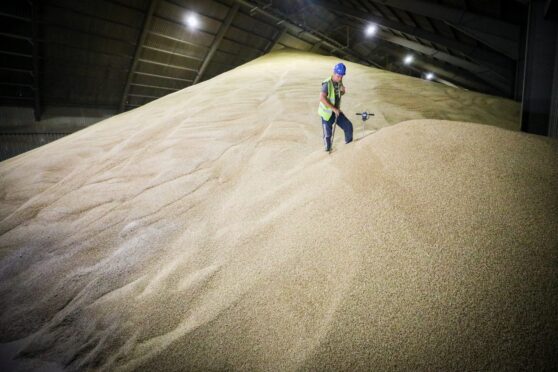The rewards for growing malting barley and milling wheat over the relative feed grain versions of both crops is ‘historically high’ at present, according to the Agricultural and Horticultural Development Board (AHDB).
The malting barley premium hit a September record of £67.50 a tonne last month while the premium for milling wheat was £56.70 a tonne, both ‘elevated’ figures, as described by AHDB Senior Analyst (Cereals & Oilseeds) Helen Plant in the organisation’s latest grain market report.
The September 2023 gap between the UK average spot ex-farm prices for total malting barley and feed barley was the largest for the month, as available on electronic records, which stretch back to 1976. It was also the third-highest gap recorded over the same time frame for any month, beaten only by premiums of £71.80/t in January 2022 and £68.10/t in February 2022.
“The wide gap reflects the challenging weather during harvest, both in the UK and across Europe,” it was stated in the AHDB report. “With global barley supplies tight and European quality down, UK prices need to be elevated to prevent excess exports. Meanwhile, demand from brewers, maltsters and distillers in the UK has got off to a strong start this season.”
Elevated milling wheat premium
The gap between spot ex-farm bread milling wheat and feed wheat prices also remains large with the average UK ex-farm price in September 2023 setting a record for the month, albeit at lower levels than earlier this year.
In addition, figures for last week, ending October 5, show the UK average spot price for bread milling wheat reaching £243.90/t, which equated to a £56.70/t premium over the feed wheat price.
“Like barley, the challenging growing year and harvest has impacted wheat quality,” reported AHDB, highlighting the knock-on effects on the UK market of production challenges this year in Germany and Canada, and, to a lesser extent, France, all historically key sources for imported milling wheat, used to supplement domestic UK supplies.
The higher relative costs of importing milling wheat, alongside questions about the quality of the UK crop are described by AHDB as being responsible for supporting bread wheat premiums. The organisation’s current forecast for the crop, therefore, is that premiums for bread wheat over feed wheat are likely to stay ‘elevated’ compared to previous years and that this situation will continue for as long as imports remain expensive.

